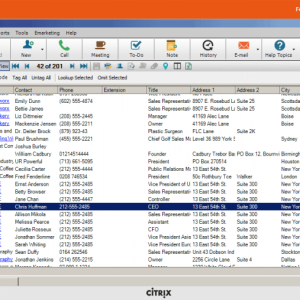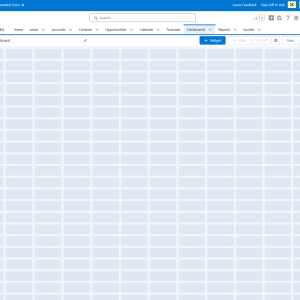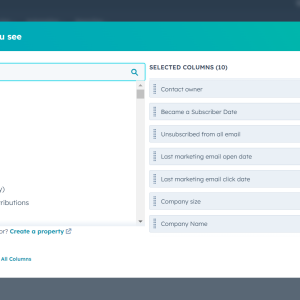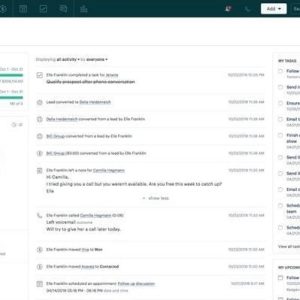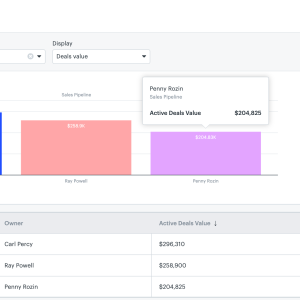Salesforce is undeniably one of the most popular and widely-used customer relationship management (CRM) platforms in the business world. However, it may not be the best fit for every organization due to its high pricing and complex features. Fortunately, there are several alternatives to Salesforce that offer comparable features and pricing options. In this article, we will explore some of the best alternatives to Salesforce, comparing their key features and pricing structures. Whether you are a small startup or a large enterprise, finding the right CRM solution for your business needs is crucial, and this guide will help you make an informed decision.
HubSpot is the best Salesforce alternative, offering a similarly scalable platform with lots of features and impressive analytics. In fact, our research found that HubSpot is one of the best CRMs for small businesses thanks to its robust free plan, something Salesforce does not have.
You are viewing: Best Alternatives to Salesforce – Features and Pricing Compared
Salesforce is the most popular CRM in the world by a staggering margin, accounting for one third of CRM market share around the world. The platform is well known for its in-depth reporting dashboards and helpful tools for sales, marketing, and customer service organizations. It’s not perfect, though, with a high price tag, no free plan, and a complicated interface, which is why we’ve collected some alternatives to Salesforce for you to choose from.
In this guide, we’ll examine the merits of Salesforce competitors, helping you to decide which is the best CRM software for your own business, whether it be for marketing, sales, or customer service. Here are our top picks:
Top Alternatives to Salesforce
Choosing a CRM platform is all about finding the right fit – something that offers the features you need, and the customizability every business requires. Our advice is to always seek out a personalized quote for the needs and scale of your business – and you can do this using our simple, no-obligation CRM quotes form. That way, you can make sure you’re investing in a CRM solution that’s fit for your purposes and budget.
So, with all these great Salesforce competitors on the market, would we ward you off choosing Salesforce entirely? No chance – Salesforce is a market leader for good reason, and between best-in-class features and some surprisingly competitive tailored pricing plans there are plenty of reasons to opt for Salesforce.
HubSpot CRM
The key appeal of HubSpot is also its biggest differentiation from Salesforce: it starts by offering the basic HubSpot CRM for free, with virtually no limits on users or features for the basic CRM for following up on leads, opportunities, and tracking your customer database.
On top of that, our team found that the HubSpot interface is decidedly easy to use, while still offering robust functionality, including a dashboard with an at-a-glance view for all ongoing deals. It also integrates with Gmail and Outlook to easily pull in email data, for better visibility of customer interactions within your organization.
HubSpot Features
For any business that needs to go beyond the basic CRM, HubSpot offers additional CRM-related platforms called “hubs” for one-to-one marketing, sales, and customer service. All of these hubs have free tiers; however, the added features that most businesses would want requires a monthly subscription.
Even better, our researchers noted that the platform has a laser focus on customer engagement and was clearly designed by experts that know exactly what kind of data you need and what kind of tasks it can help with.
HubSpot Pricing
HubSpot pricing varies pretty dramatically based on which hubs you’re interested in taking advantage of, with each adhering to three pricing plans: Starter, Professional, and Enterprise. If you’re interested in marketing, sales, and service hubs, the price is going to be pretty hefty, particularly for the enterprise-level plans. That’s the benefit of HubSpot, though: you can mix and match depending on your needs to save a bit of money.
Check out our guide HubSpot Pricing for more information
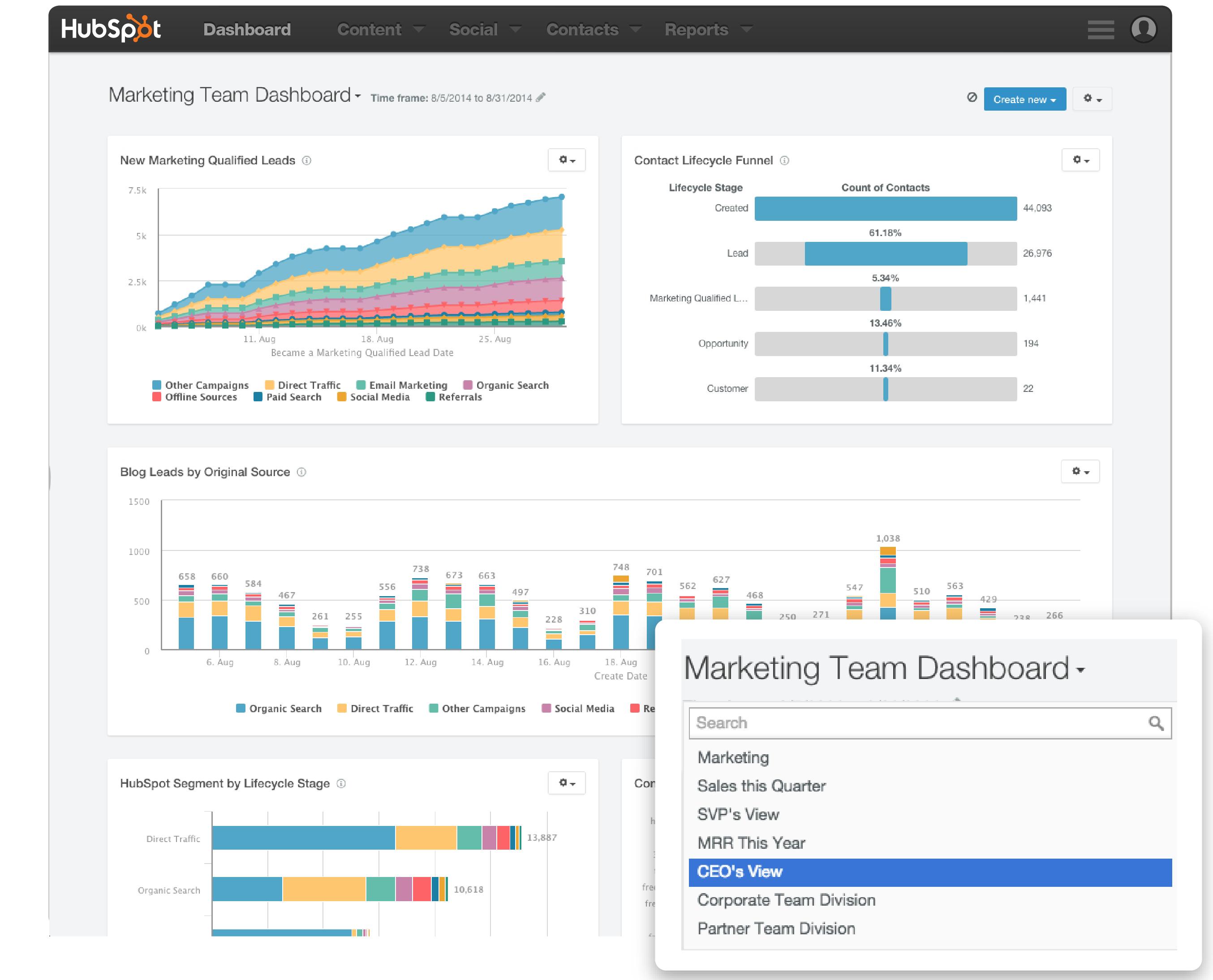
The reporting dashboard on HubSpot
Image: Duanetoops testing
Why HubSpot Is a Good Salesforce Alternative
HubSpot is a better alternative to Salesforce because of the marketing features available. In fact, HubSpot is the best CRM available for marketing features, according to our research. HubSpot’s marketing hub offers ad management and retargeting, conversational chatbots, and landing pages, and that’s all found in the Starter plan. Simply put, if you’re looking for a CRM with marketing capabilities, HubSpot is your absolute best bet.
Additionally, we’ve found the intro walkthrough in HubSpot to be super intuitive and helpful, making it perfect for anyone that has no experience with CRM software. The only drawback is that, during our testing, the software lagged, and we lost the intro walkthrough, which made the experience much more difficult.
Still, the biggest improvement is that HubSpot offers a free plan, which Salesforce doesn’t. Even better, HubSpot offers a better free plan than other free plans on this list, like Zoho CRM. It offers significantly more functionality across sales, marketing, and customer service, with Zoho CRM offering the most basic options compared to HubSpot’s surprisingly advanced free offerings.
See our full HubSpot vs Salesforce guide here
Freshworks CRM
Freshworks is the umbrella under which Freshsales, Freshmarketer, and Freshdesk operate under. These offerings are typically a bit more affordable than your average CRM and offers enough features to get you through. Our researchers found the UI to be highly intuitive, with a powerful feature set including AI-based lead scoring, which can help you decide which customers are prime for a sale and which ones need a bit more massaging to get to conversion.
Freshworks CRM Features
At these prices, it’s understandable that Freshworks doesn’t have all the features of a Salesforce or a HubSpot, particularly when it comes to data visualization and analytics. However, at this price, it offers quite a lot of features, especially those that are used to engage new customers online. Simply put, if you’re trying to save a bit of money without sacrificing a lot, Freshworks is a great place to start.
Our researchers found that Freshworks was particularly good for email marketing, offering a quick and easy setup process that makes scheduling campaigns easy. You do have to make your own templates, but once they’re created, you can send out emails in a flash.
Freshworks CRM Pricing
Freshworks CRM offers three different pricing plans across its many offerings: Growth, Pro and Enterprise. You’ll also get access to a free plan across the board, allowing you unlimited users with obviously stripped-down functionality compared to the paid plans. Still, it’s a great way to test out the software before making a financial commitment.
Check out our Freshdesk pricing guide for more information

The Freshworks automation builder in action
Image: Duanetoops testing
Why Freshworks CRM Is a Good Salesforce Alternative
It’s got to be the price on this one. Freshworks is infinitely less expensive than Salesforce, as well as other options on this list like HubSpot, even when it comes to infamously expensive marketing plans. In fact, on average Freshworks plans are nearly ten times less expensive than their Salesforce counterparts, making it a good to budget option that doesn’t sacrifice too much.
Microsoft Dynamics
Microsoft’s newest mission is to bring its software to every platform with seamless integration between its various products, and the company’s CRM, Microsoft Dynamics, is no exception. If your company already lives and breathes the Microsoft platform, with products such as Office 365 and Outlook for email, then the Dynamics CRM can make a lot of sense. Dynamics is also a good platform if you’ve been wanting to try out Microsoft HoloLens as a business tool, since it integrates with that as well. According to our researchers, Dynamics feels very much like a tool that is ideal for large enterprises and active medium-sized businesses but may be overkill for smaller companies.
Microsoft Dynamics Features
Microsoft offers some unique tools that go beyond the CRM within the Dynamics umbrella of services. These include platforms for finance, operations, and talent recruiting, as well as services we’ve seen elsewhere, such as customer service and marketing platforms. It’s incredibly robust as far as features are concerned, which is why it’s such a great option.
Microsoft Dynamics Pricing
The Microsoft Dynamics pricing scheme is certainly different than what you might be used to. Like HubSpot, it offers a wide range of specific options, so that you can mix and match exactly what you’re looking for. It can get pretty expensive if you’re looking to add every piece of it, which includes field service, customer service, marketing, sales, finances, operations, commerce, and human resources, but hopefully you’re only looking for a few of these.

The interactive home dashboard for Microsoft Dynamics
Image: Duanetoops testing
Why Microsoft Dynamics Is a Good Salesforce Alternative
Microsoft Dynamics is similarly robust when it comes to comparisons with Salesforce, but the biggest edge it has over everyone’s favorite CRM is that it’s from Microsoft. This means that it integrates flawlessly with Office, Outlook, and many other Microsoft systems. So if your company is already set up with Microsoft, then the Dynamics platform is the way to go.
Along with all that, Microsoft Dynamics allows for seamless integration with other Microsoft services like Teams and Outlook. And while options like Zoho CRM and Pipedrive offer similar integrations through third-party services, you really can’t beat the original when it comes to functionality.
Interested in Microsoft Dynamics? Head to our Microsoft Dynamics review
SugarCRM
SugarCRM isn’t the biggest name in the business, but it prides itself on being able to hang with the big boys. Our researchers found it to be a simple, easy to understand interface, with deep customization options — making it incredibly flexible and adaptable. Sugar also has no hidden fees, offering three standard pricing plans ranging from $40 to $150 per user, per month, each providing a different service: Sugar Sell, Sugar Market, and Sugar Serve.
SugarCRM Features
SugarCRM has a range of tools to facilitate collaboration between different business functions and works seamlessly across mobiles and tablets making it great for mobile workers. SugarCRM is easy to integrate with your existing IT infrastructure, offering SaaS and on-premises installations.
SugarCRM Pricing
SugarCRM’s pricing model is similar to that of HubSpot, with different options for service, marketing, and sales. Additionally, you can combine all of them in two different plans, Professional and Enterprise, which cater to small and large companies depending on your needs.
Check out our SugarCRM pricing guide for more information

The SugarCRM home dashboard
Image: SugarCRM
Why SugarCRM Is a Good Salesforce Alternative
Customizability is the name of the game when it comes to SugarCRM. With a widely flexible platform designed for particular needs, this platform can be molded to suit whatever metrics and functionality you need. Plus, with a stylish, easy to use interface, you can’t go wrong with SugarCRM when it comes to customizability.
Additionally, the starting price may seem a bit higher than average, but you get a lot, which makes it actually more affordable than Salesforce and HubSpot when it comes to lead conversion features at nearly half the price of both.
Zoho CRM
To be clear, Zoho CRM isn’t exactly a good alternative to Salesforce specifically, as it doesn’t offer a good solution for enterprise-level businesses. However, if you’re a smaller business that needs a high-powered CRM to handle your sales, marketing, or customer service needs, Zoho CRM is the best option out there, according to our research. It has low-cost plans, including a free forever version, more than enough features to handle your needs as a small business, and a very easy to use platform, even for beginners.
Zoho CRM features
Lower prices doesn’t mean Zoho CRM skimps on features. Even at the Standard plan, you’ll get access to tools like sales forecasting, custom reports, and workflow automation. The problem with Zoho CRM in comparison to Salesforce is that its enterprise plan has a lot of limitations, which could pose a problem for larger businesses. Overall, though, small businesses can’t do much better than Zoho CRM on features.
Zoho CRM pricing
Zoho CRM pricing is pretty low, but it offers a lot of different pricing plans along the way. The CRM offers five different pricing plans, including a free forever plan that can get you started. You’ll also be able to take advantage of a 30-day free trial for all paid plans, so you can really test it out before you buy. It’s worth noting, also that Zoho CRM’s most expensive plan is less expensive than Salesforce’s second cheapest plan.
Check out our Zoho CRM pricing guide for more information

The admin panel in Zoho CRM
Image: Duanetoops testing
Why Zoho CRM Is a Good Salesforce Alternative
Zoho CRM is a better Salesforce alternative for small businesses, because it offers low-cost pricing plans and a robust free plan to get you started. On top of that, you don’t miss out on features with these low-cost plans, but our researchers found that there are limits on certain actions, so enterprise-level businesses in need of an alternative to Salesforce at scale could run into some issues. Honestly, if you’re looking for an enterprise-level replacement for Salesforce, options like HubSpot are much better suited than Zoho CRM.
Free Salesforce Alternatives
Many CRM platforms offer free versions, but there are downsides to be aware of. Most are limited by the number of users or require you to pay for upgrades beyond the core service. One of our top-choice Salesforce alternatives, Freshworks CRM, has a genuinely impressive free CRM tier. However, to unlock the very best of Freshworks, it’s likely you’ll need to upgrade to the premium plans.
A free taster is still a great option for testing the various features and interfaces of multiple CRM platforms or experimenting with a platform to see if it’s right for you.
The reality, however, is that a free option is not a long-term solution. Free CRM software, even from reputable companies, can be open to changes and downgrades, and offer far fewer options for customization and added features.
Check out our full guide to Salesforce Pricing for more
Salesforce Alternatives for Sales
See more : Act! CRM Pricing – How Much Does Act! CRM Cost?
As the name might suggest, Salesforce is a great CRM for sales. However, it can be a bit intimidating to smaller teams that don’t need all those features and data visualizations, which opens the door to some of the alternatives below. Whether it be lead capture or the ability to accept payments, these providers offer a lot when it comes to sales. Take a look at some of our top picks below:
Salesforce Alternatives for Marketing
We mentioned earlier that HubSpot is easily the best CRM for marketing, but there are plenty of other options out there that do a great job. Like Salesforce, HubSpot is geared towards larger businesses, so if you’re looking for something a bit less intense, these alternatives should get the job done without too much of a hit to your budget. And don’t forget to check out our best CRM for marketing guide for a more in-depth look at these providers:
Salesforce Alternatives for Customer Service
The importance of customer service cannot be overstated when it comes to business, and a good CRM can help a lot. Salesforce does a fine job of this, but there are plenty of other options that are specifically geared towards helping customers that might be a better fit. Take a look at some of the options below to get a better idea of what kind of CRM are aimed at customer service:
Salesforce Alternatives for Small Businesses
While Salesforce is considered one of the top CRM around the world, it’s not exactly suited to small businesses. Between the extensive feature catalog and the high price, smaller teams can take a larger hit to their budget than they need, for a lot of functionality they might not need. Plus, given the robust nature of Salesforce, your small team could get bogged down by complicated dashboards, which is never helpful.
Fortunately, we’ve done some research and found out which options are the best CRM for small business. Take a look at the table below of small business alternatives to Salesforce.
What to Look for in a Great Salesforce Alternative
Not all Salesforce competitors are created equal, which is why having a keen eye for features is key to picking the right one. The following are a few key features to look out for when deciding on a Salesforce alternative.
Reporting
One of the major benefits of any CRM software is its ability to provide analytics on a wide range of metrics within your business. From conversion rates to customer attrition, a good CRM platform will have reporting tools designed to let you know exactly what’s working for your business, and more importantly, what isn’t.
Customization
If you’re looking for CRM software that can do exactly what you want it to do, customizability is going to a big consideration for you. Salesforce has a robust feature offering, but doesn’t offer features like an open API or a wide range of flexible options. Basically, if you’ve got niche CRM needs, make sure to take a look at customizability.
Automation
The whole point of CRM software is to save you a little time, which is why automation features are so necessary in a good provider. After all, what’s the point of installing business software if it isn’t going to take care of the small projects for you? Finding the right software means discovering exactly what each provider can do for your automation needs, so make sure not to overlook that.
What’s more, automation allows you to expedite leads through your sales pipeline based on pre-programmed criteria, making it easier for your business to generate sales.
Ease of Use
Whether you’re an expert or a beginner, having an easy to use platform can make a huge difference when it comes to improvements in productivity. Salesforce, in particular, is quite complicated for beginners due to its robust feature catalogue and reporting tools. If you’re giving CRM software a go for the first time, ease of use needs to be at the top of your list.
Support
Speaking of beginners, having a little help from an expert support team can go a long way when adapting to new software, which is why noting the customer service options is invaluable to understanding a provider. From 24/7 service to sporadic ticket systems, providers run the gamut as far as customer support goes, so if you’re just starting out, it’s certainly worth noting.
Pricing
Let’s be honest of course you’re looking at price when it comes to CRM software. From pricing plans to providers, there are hundreds of different price points to consider. Fortunately, compared to Salesforce, most CRM software is markedly more affordable, but the range is still pretty substantial. Not that we have to say it, but seriously: take a look at your pricing options before pulling the trigger on your new CRM software.
We take our impartial research and analysis seriously, so you can have complete confidence that we’re giving you the clearest, most useful recommendations.
After conducting an initial exploration to identify the most relevant, popular, and established tools in the market, we put them through their paces with hands-on testing to see their real strengths and weaknesses. In this case, we put 13 CRM systems to the test across 84 areas of investigation.
Based on years of market and user needs research, we’ve established a CRM testing methodology that scores each product in six main categories of investigation and 13 subcategories; this covers everything from the available features and scalability capacity to the product’s value for money, and much more.
Our main testing categories for CRM systems are:
Features: the functionalities and capabilities provided by the CRM software, such as contact management, lead and opportunity tracking, and task and activity management.
Help and Support: the resources and assistance available to users when they encounter issues or require guidance while using the CRM software.
Customisation: the ability to tailor the CRM software to suit the specific needs and processes of the organization, e.g. customizing fields, layouts, and workflows.
Scalability: the ability of the CRM software to accommodate the growth and changing needs of the organization, such as the capacity to handle a growing customer database.
Price: the cost associated with using the CRM software. It includes factors such as licensing fees, subscription plans, and additional charges for add-on modules or features.
Team Structure – Sales CRM: determining if a platform makes it easier to manage large sales teams, including team dashboards, team hierarchies, and team inboxes.
Usability – Small Business CRM: assessing the simplicity of the interface, the ease of navigating through menus and options, and the overall user experience.
When it comes to calculating a product’s final score, not all testing areas are weighted evenly, as we know some aspects matter more to our readers than others, which are merely “nice to have.” After hundreds of hours, our process is complete, and the results should ensure you can find the best solution for your needs.
At Duanetoops, we have a number of full time in-house researchers, who re-run this testing process regularly, to ensure our results remain reflective of the present day
Learn more about our research.
That’s a wrap on “ Best Alternatives to Salesforce – Features and Pricing Compared ” We hope you’ve found a trove of useful insights and fresh perspectives. Your opinions and ideas matter to us—join the conversation below and share your take! Hungry for more tech insights? Dive into our diverse collection of articles where innovation meets practicality. Discover More CRM Softwares.
Stay in the loop with the latest in AI and tech – your journey into the digital future continues at duanetoops.com.
#Alternatives #Salesforce #Features #Pricing #Compared
Source: https://duanetoops.com
Category: CRM
